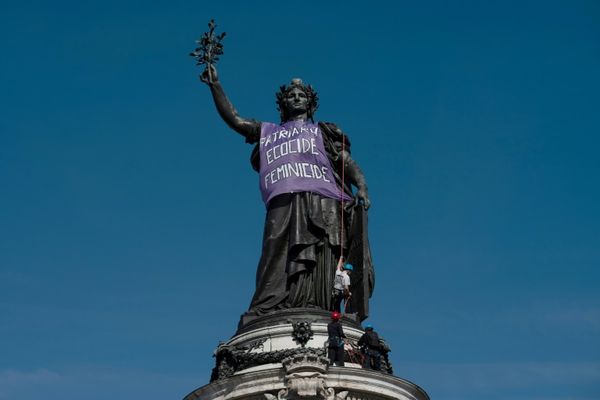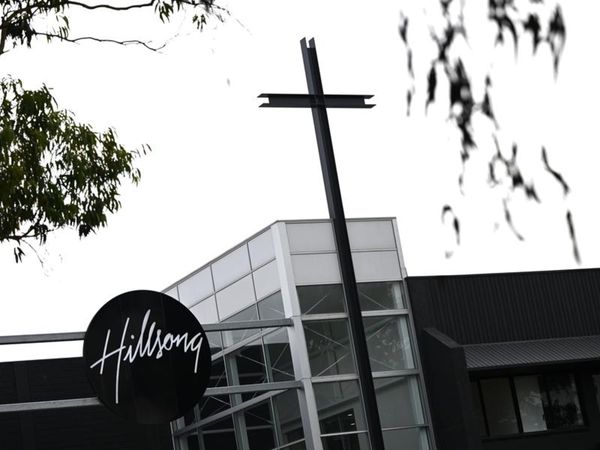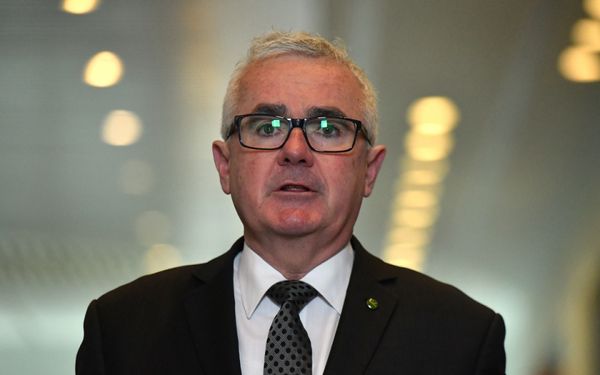
This is part two of a series on the Hillsong whistleblower files. Read part one here.
A year ago, almost to the day, the Hillsong megachurch was shaken to the core when it emerged that its founder, pastor Brian Houston, allegedly confused by a mix of alcohol and anxiety tablets, had spent 40 minutes in the hotel room of a female Hillsong supporter.
That was a mighty moral hit against Houston and the church.
Now the second shock has hit, this time potentially more lethal than the first.
A trove of internal Hillsong documents, which have been tabled in Parliament by independent MP Andrew Wilkie, threaten to inflict serious damage on the church should they back up his parliamentary claims. (Hillsong has not yet responded.)
Beyond the claims, made by Wilkie under parliamentary privilege, the documents may for the first time offer the clearest insight yet into the Hillsong way of doing business.
What is that way? From its earliest days, Hillsong has operated through charities that attract tax breaks. The tax breaks are many: they give Hillsong exemptions on fringe benefits tax, GST and — most importantly — on the church’s income. Some Hillsong charities are able to offer tax deductibility on donations. All these tax breaks are enabled by the Australian government and to an extent are underwritten by the taxpayer. They are perfectly legal.
Over the years, Hillsong has established around 20 different charities in Australia. To that already maze-like structure, it has added dozens more in the United States and other countries around the world. Some of the charities are cloaked in total secrecy. In Australia the same charity can be subject to both federal and state laws, meaning they are liable to fall between the cracks.
The cache of internal Hillsong documents may shed light on the true complexity of how Hillsong does business. If there is indeed impropriety then this will raise serious questions about the adequacy of Australia’s charities laws when it comes to regulating a complex, multinational not-for-profit with tens of millions of dollars washing through its accounts — amounting to billions of dollars over the decades — and which has access to the best financial and accounting brains in the business.
Layered on top of that are the governance questions that surround Hillsong. The church may have dozens of charities, but over the years they have all been run by the same small group of board members who are loyal to church founder Houston. This has been public knowledge for some time.
Hillsong’s public documents show that there are millions of dollars in “loans” between the various Hillsong charities. They also show that Hillsong “donates” funds to other Hillsong charities. In the opaque world in which Hillsong operates (along with other churches), it has been impossible to know the detail of these cross-charity transactions.
This is partly because key financial information is kept secret — even from the government regulator — in certain religious charities.
The documents tabled by Wilkie are not yet publicly available but they may provide a level of proof for explosive claims made by Hillsong whistleblower Natalie Moses as part of a federal court action she started in August last year.
Moses’ extensive statement of claim alleged several breaches of the Australian charities laws and raised the possibility that Hillsong had attempted to mislead the charities regulator. Hillsong has denied the allegations. The Australian Charities and not-for-profit Commission (ACNC) began looking into Hillsong’s charities almost a year ago. But the regulator — which works in secret — has made no comment on what, if anything, it has found.
Hillsong, it should be pointed out, is not the only religious organisation to use Australian charities as the basis for its business model. The megachurch has set the example for other pentecostal/evangelical churches in Australia which have similar structures and areas of operation using a host of not-for-profit entities.
The traditional religious denominations, led by the Catholic and Anglican churches, also have tens of millions of dollars locked up in secret charities and also take full advantage of tax exemptions.
That is why it is imperative the Australian government acts to ensure charity-based organisations such as Hillsong can be properly regulated and that there is genuine accountability to the taxpayer.
This matters also for Hillsong’s thousands of congregants. Many may be shocked by claims — yet to be tested — that the money they give and the faith they offer may have been used by the church to benefit a relatively small handful of people.
If there is a sense of betrayal then this may seriously undermine the moral contract between Hillsong and its congregants.
Court findings are one thing. Breaching Christian values is another altogether, as Brian Houston himself found out when he made a failed attempt to return to the church after being found to have committed moral transgressions.
The disclosures threaten to be explosive not only for Hillsong but for the Australian government and its charities regulator.










